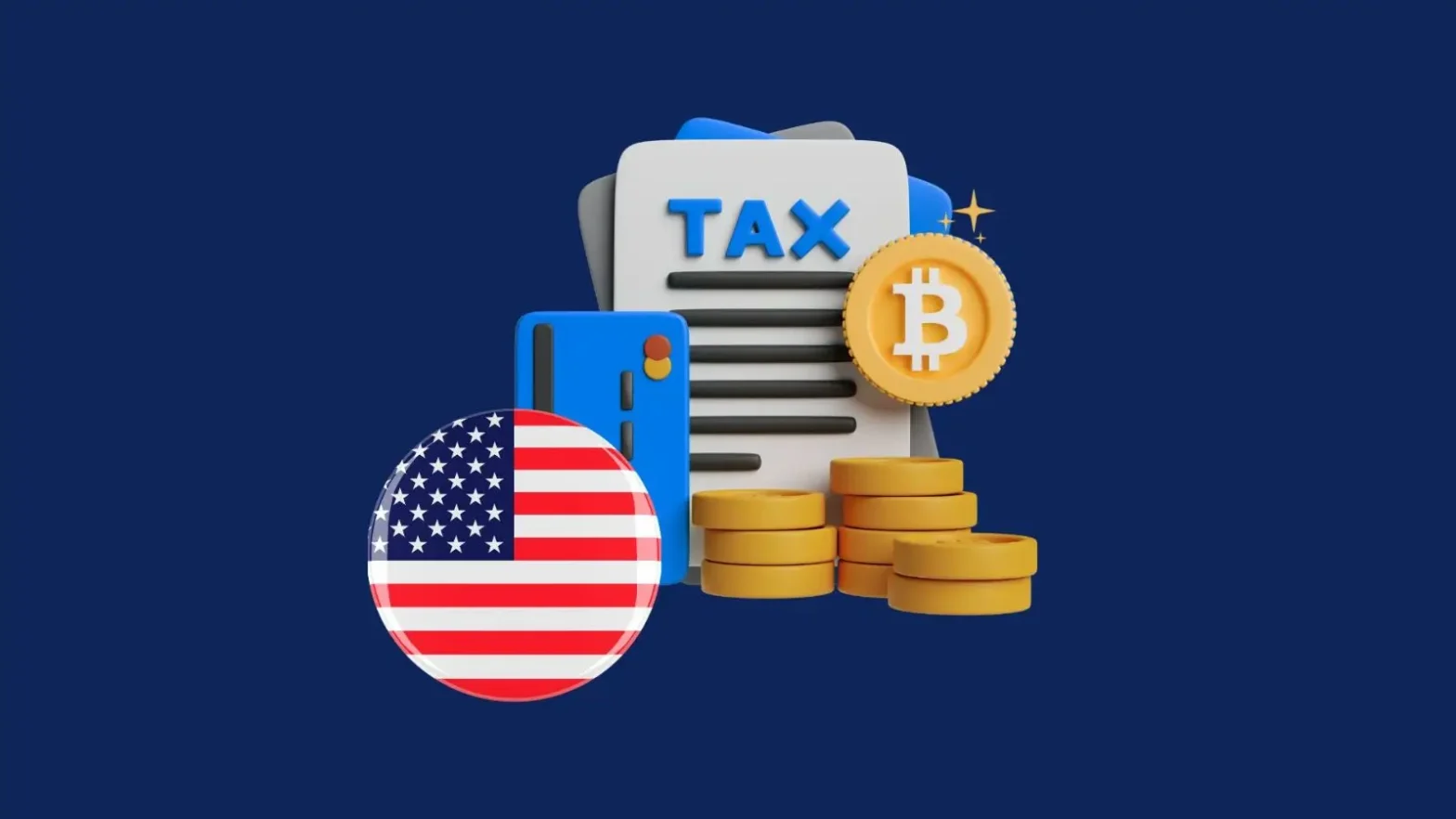Filing your crypto taxes in the U.S. can feel like deciphering an alien language—until you use the best U.S crypto tax software. With the IRS increasing scrutiny on crypto transactions, U.S. investors can no longer afford to wing it or rely on spreadsheets.
Fortunately, specialized crypto tax software can simplify everything, from tracking your trades to generating Form 8949 with a click.
After testing a dozen popular tools, we’ve shortlisted the top five crypto tax software platforms that are 100% U.S.-friendly, IRS-compliant, and beginner-to-pro ready.
Whether you’re a casual trader or deep in DeFi and NFTs, this guide will show you the smartest choices in 2025 and beyond.
Let’s start with a quick comparison before diving into the full reviews.
The Best U.S. Crypto Tax Software in 2025 At a Glance
The chart below compares the five best U.S. crypto tax software programs that investors use to meet their tax obligations.
| Software | Best For | Free Plan | IRS-Ready | Supports DeFi/NFTs | TurboTax Integration | Try It |
| Koinly | Beginners & Experts | Yes | Yes | Yes | Yes | Start Free |
| CoinTracker | Portfolio + Taxes Combo | Yes | Yes | Partial | Yes | Try Now |
| ZenLedger | DeFi, NFT & Tax Optimization | Yes | Yes | Yes | Yes | Explore |
| TokenTax | CPA Support & Hands-Off | No | Yes | Yes | Yes | Get Started |
| Accointing | Basic Filing Needs | Yes | Yes | Limited | Yes | Try Free |
Why You Need U.S.-Friendly Crypto Tax Software
Crypto taxes are no longer a grey area in the U.S.—they’re regulated and actively enforced. Every crypto trade, swap, staking reward, and airdrop can potentially trigger a taxable event.
And the IRS expects detailed reporting on Form 8949, Schedule D, and in some cases, 1099-B or 1099-MISC.
Manually calculating cost basis, especially if you’re using multiple wallets and exchanges, can be a nightmare. Add DeFi transactions or NFT flips, and it’s easy to make costly mistakes.
Crypto tax software helps automate data imports, classify transactions, apply correct tax rules (FIFO, LIFO, HIFO), and produce reports that are TurboTax and IRS-ready.
But not all platforms are created equal. Some tools are heavily skewed toward international markets or lack proper U.S. form generation. That’s why we focused only on software that’s tailored to American users.
Read: How to Tell a Crypto Exchange is About to Collapse
The Top 5 Crypto Tax Software for U.S. Filers
Navigating crypto taxes in the U.S. isn’t just about staying compliant—it’s about staying ahead.
With the IRS cracking down on digital asset reporting and 8949 requirements becoming stricter each year, the right crypto tax software can mean the difference between peace of mind and a painful audit.
Below, we break down the best tools in the market that not only support complex transactions and U.S. tax forms but also integrate seamlessly with wallets, exchanges, and even TurboTax.
1. Koinly – Best Overall for U.S. Crypto Tax Filing

Koinly strikes the perfect balance between usability, accuracy, and features. It supports over 400 exchanges and wallets, auto-syncs transactions, and handles DeFi, NFTs, margin trading, and staking. But what makes it shine for U.S. filers is its razor-sharp compliance focus.
Koinly generates detailed IRS Form 8949 and Schedule D, pre-filled and ready to file. It also includes TurboTax and TaxAct integration, letting you transition smoothly from import to e-file.
The platform is particularly beginner-friendly, with a modern dashboard and intuitive tax preview features.
But advanced users won’t feel limited—Koinly supports custom CSV imports, multiple cost basis methods, and even foreign account reporting (FBAR/FATCA).
Pricing starts at $49/year, but you can preview your capital gains and reports for free.
Pros:
- Best IRS support in the industry
- Accurate DeFi/NFT tracking
- Clean user interface
Cons:
- Free plan doesn’t allow report download
Start Free with Koinly.
2. CoinTracker – Best for Tracking + Taxes in One
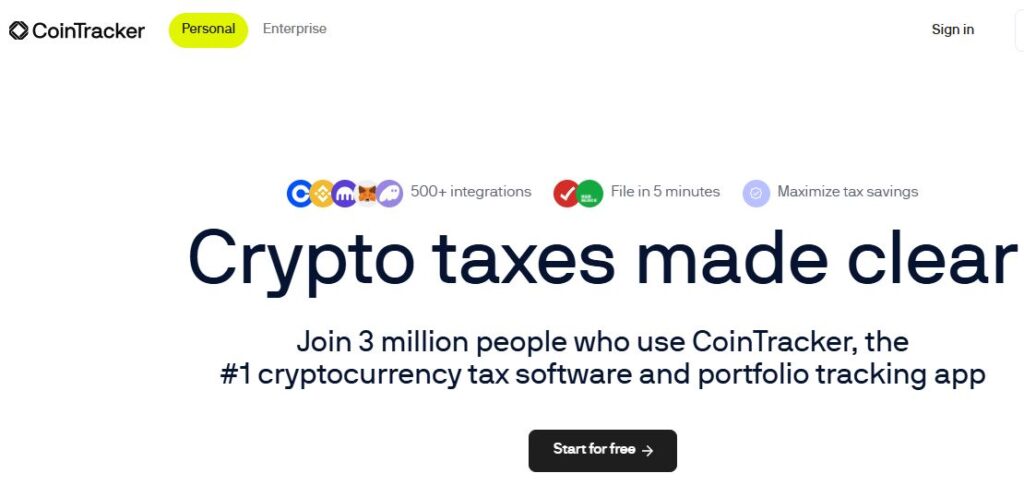
CoinTracker combines portfolio tracking with crypto tax automation in a single app. If you want a real-time view of your holdings and a clean tax reporting workflow, it’s a solid pick.
It supports 300+ exchanges and automatically maps incoming and outgoing transactions. For U.S. residents, CoinTracker generates Form 8949 and integrates seamlessly with TurboTax and H&R Block.
The platform is especially useful for passive investors who value clean, real-time portfolio data. However, its DeFi and NFT handling is not as robust as Koinly’s or ZenLedger’s.
Plans start free, with tax report generation starting at $59/year.
Pros:
- Real-time tracking dashboard
- Clean tax form exports
- Excellent UI for mobile users
Cons:
- Limited DeFi support
Try CoinTracker now.
3. ZenLedger – Best for DeFi/NFT Tax Filers
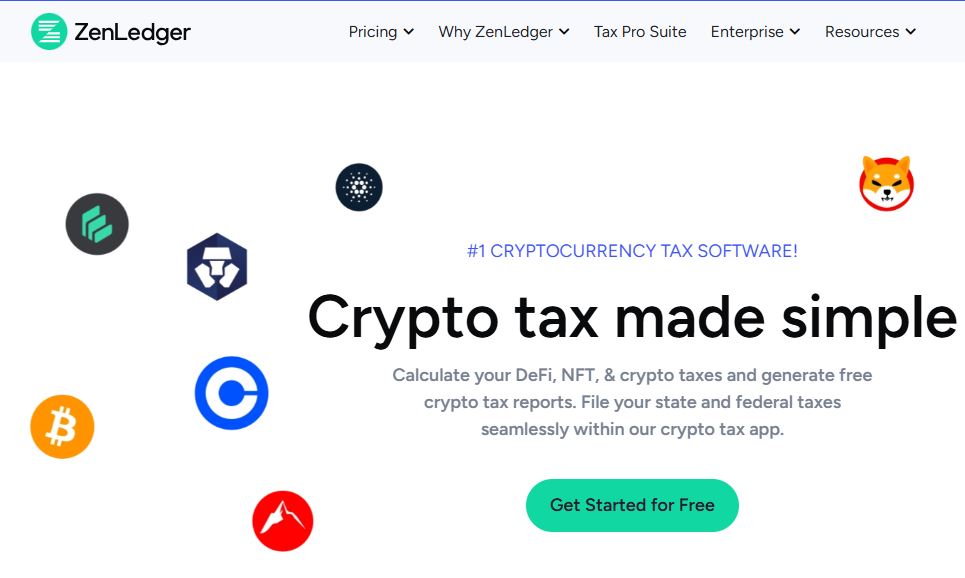
ZenLedger is built with advanced traders in mind—particularly those deep in DeFi, yield farming, staking, or NFT flipping. It’s IRS-ready and works directly with TurboTax, H&R Block, and even CPAs.
ZenLedger’s DeFi and NFT categorization is strong, pulling detailed on-chain data from multiple protocols. It generates all the U.S.-required tax forms, including 8949, Schedule D, and income statements for staking and rewards.
The interface is more complex than Koinly, but the reporting power is worth it. If you had 300+ transactions across Ethereum, Solana, and Arbitrum this year, ZenLedger is the tool you want.
Pricing starts at $49/year for basic users and scales based on transaction volume.
Pros:
- Deep support for DeFi and NFTs
- U.S.-centric tax compliance tools
- CPA-ready audit trail reports
Cons:
- It can be overwhelming for beginners
Explore ZenLedger.
4. TokenTax – Best for Hands-Off Filing with CPA Help
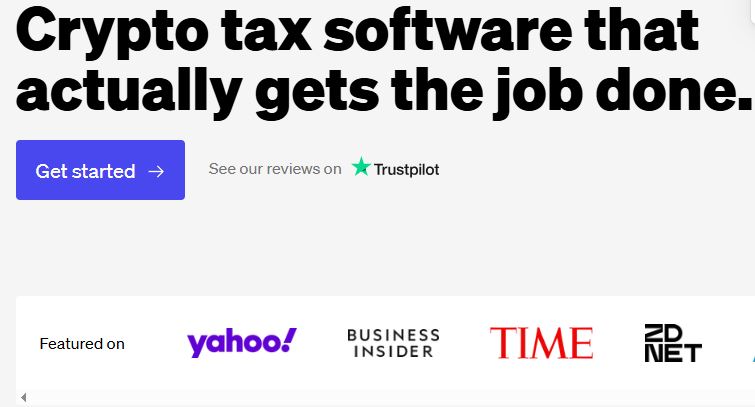
TokenTax goes beyond automation—it offers real CPAs to help file your crypto taxes. If you want a white-glove, hands-off solution, this is your platform.
It supports U.S. tax filing from start to finish, including capital gains, mining income, staking, and even international accounts. The higher-tier plans include full CPA support and audit defense.
The only downside? Pricing. TokenTax starts at $65/year but gets significantly more expensive for users with complex needs.
Pros:
- Real CPA support available
- Covers every IRS form and scenario
- Built-in audit defense plans
Cons:
- No true free tier
- More expensive than others
Get Started with TokenTax.
5. Accointing – Best Free Tool for Simple Reports
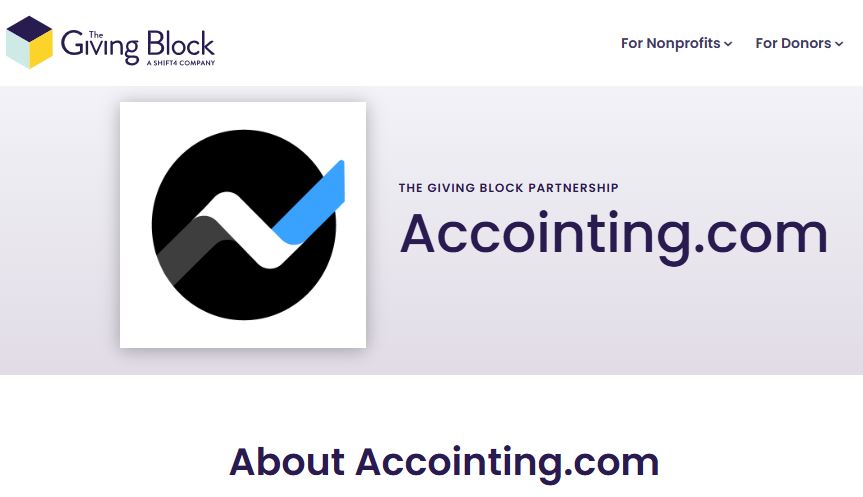
If you’re a casual investor who made a few trades and wants a basic tax report, Accointing is your go-to. Now owned by Glassnode, it offers a free plan that handles simple trades and generates basic Form 8949s.
The platform includes easy integrations with most major exchanges and supports CSV uploads for wallets. While it doesn’t go deep into DeFi or NFTs, it gets the job done for low-volume traders who need to stay IRS-compliant.
Premium plans are available for more transactions, but most casual users can file for free.
Pros:
- The free plan is genuinely useful
- Simple interface and clean exports
- Glassnode acquisition ensures future stability
Cons:
- Limited support for DeFi and advanced scenarios
Try Accointing Free.
How to Choose the Right Crypto Tax Tool
Choosing the right crypto tax software comes down to your trading habits. For most Americans, compliance is non-negotiable—so prioritize platforms that generate Form 8949, Schedule D, and offer TurboTax integration.
If you’re primarily trading on major exchanges such as Binance and want simplicity, Koinly is an excellent default. If you’re more focused on seeing your entire portfolio in one place and automating tax at year’s end, CoinTracker delivers.
Advanced users engaging in staking, NFTs, and DeFi will benefit from ZenLedger’s depth, while TokenTax is ideal for those who want CPA-backed peace of mind. Accointing is a great starting point for new investors.
IRS Crypto Tax Basics for 2025
Here’s what you need to know about crypto taxes in the U.S.:
Cryptocurrency is treated as property by the IRS. Every time you sell, trade, or convert crypto—even crypto-to-crypto—you’re triggering a taxable event.
Profits are taxed as capital gains; losses can be deducted. Receiving crypto via airdrops, mining, or staking is taxed as income.
You’re required to file Form 8949 to report capital gains and losses, and Schedule D to summarize them. If you’ve earned staking or mining income, you must also report that on Form 1040.
The IRS now asks about crypto on the front of your tax return, and failure to report can lead to penalties, audits, and interest charges. Compliance isn’t optional—and that’s why choosing the right tax tool matters.
Crypto Tax Software FAQs
Q1: Is crypto tax software legal to use for IRS filings?
A: Yes. Tools like Koinly and CoinTracker generate IRS-approved forms that can be filed via TurboTax, TaxAct, or manually.
Q2: Do I need crypto tax software if I only used Coinbase or Robinhood?
A: Yes. Even simple trades on Coinbase must be reported. Tax software helps verify cost basis and prepares accurate filings.
Q3: Which tools support NFT and DeFi tax reporting?
A: ZenLedger and Koinly currently offer the most robust NFT and DeFi tracking for U.S. users.
Q4: Can I claim crypto losses on my taxes?
A: Yes, you can claim crypto losses of up to $3,000 per year, in capital losses can offset gains or income. The software calculates this for you.
Q5: What happens if I don’t report my crypto taxes?
A: You risk penalties, audits, and IRS scrutiny. The agency uses blockchain analysis to identify unreported wallets and addresses.
Verdict: Which Crypto Tax Tool Should You Use?
If you want the most balanced and user-friendly option, go with Koinly. It’s IRS-ready, easy to use, and handles DeFi/NFTs with confidence.
But if you want integrated tracking and a mobile-first dashboard, CoinTracker is a top pick.
Advanced users should explore ZenLedger, especially if you’re dealing with complex transactions.
If you’re short on time and want professional help, TokenTax offers CPA-level support. And if you’re a casual user looking for free, functional tax help, Accointing is your best friend.
Crypto taxes don’t have to be stressful—just smart. And with the right software, staying compliant in 2025 is simpler than ever.

